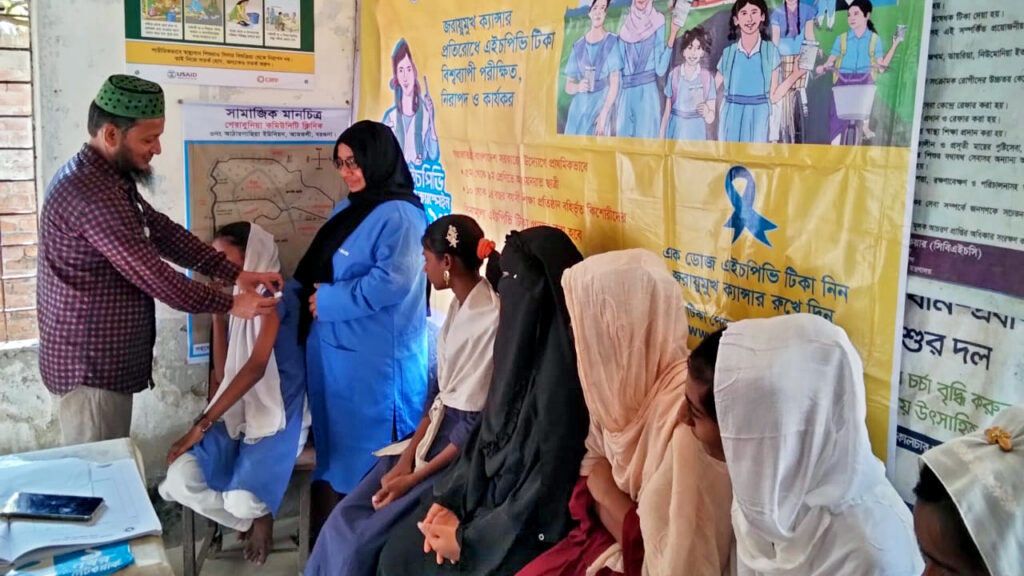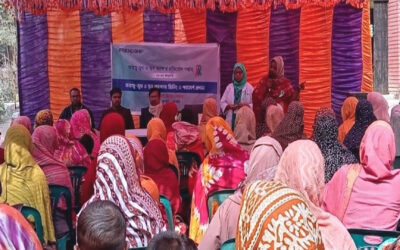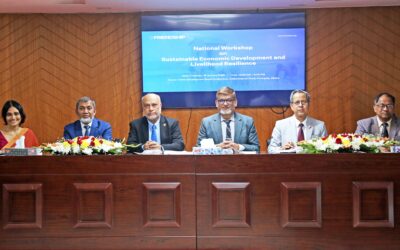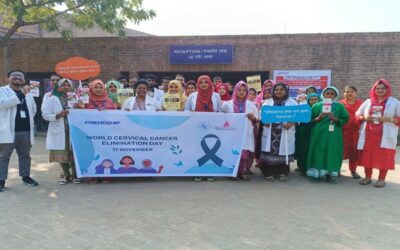680 Friendship Community Medic-aides (FCM) provided extensive HPV vaccination coverage in remote river islands, coastal regions, and wetlands.
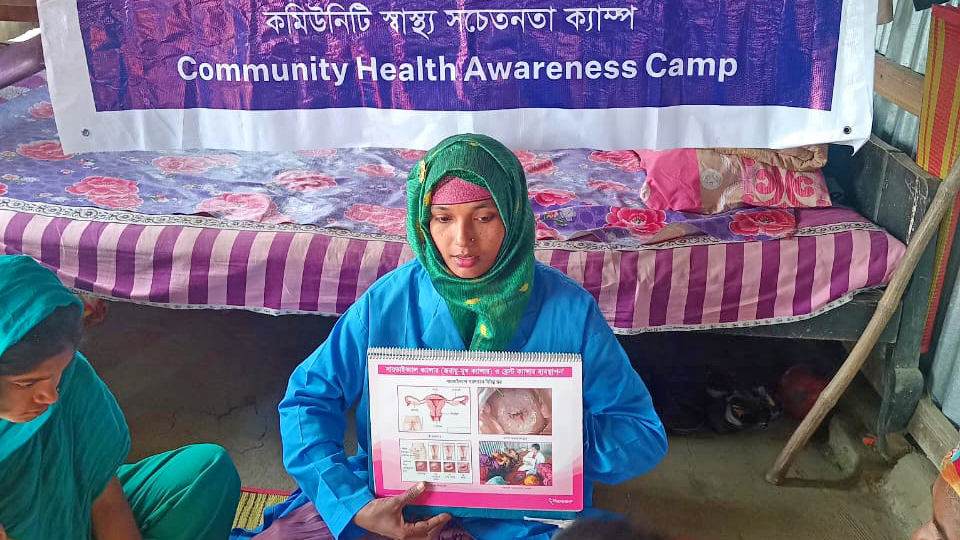
by Iffat Ara Sharmeen
January 15, 2025
Friendship Community Medic-aides have made a significant stride in expanding the National HPV (human papillomavirus) Vaccination Campaign in the intervention areas of Friendship. Through their efforts, 85% of the eligible adolescent girls from isolated areas of Bangladesh such as the sedimentary char islands, coastal regions, and wetlands got vaccinated. These regions often lack full participation in national immunisation programs. Friendship FCMs facilitate each national vaccination programme in its areas of operation to ensure increased participation.
They demonstrated exceptional commitment to ensure the National HPV campaign’s success. The Bangladesh Government supported the Expanded Programme on Immunisation (EPI) to launch the final phase of the HPV vaccination programme across all divisions except Dhaka with the support of GAVI, the Vaccine Alliance, UNICEF, and the World Health Organisation (WHO) on October 24, 2024. The FCMs voluntarily participated in the campaign and contributed to the overall success of the vaccination campaign especially in the hard-to-reach areas.
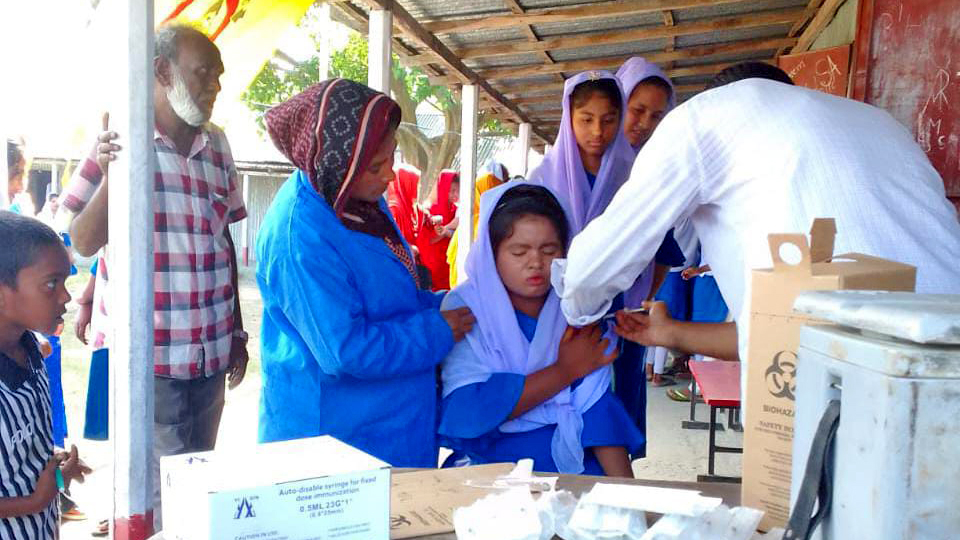
The HPV vaccine is particularly important as a single dose of HPV vaccine to an adolescent girl can prevent adult cervical cancer. It is transmitted through sexual contact, often asymptomatic and difficult to detect without screening. Thus, this vaccination campaign was crucial to protect women’s health in the long run. So far, 6.5 million adolescent girls all over Bangladesh received the HPV vaccine under this campaign, with 93% of them being 5th to 9th-grade female students, along with non-institutionalised girls aged between 10 to 14. Importantly, cervical cancer can be entirely prevented, and even cured if detected early. Despite this, many women suffer from it, especially in rural areas where they are unaware of its signs, symptoms and long-term effects of contracting HPV.
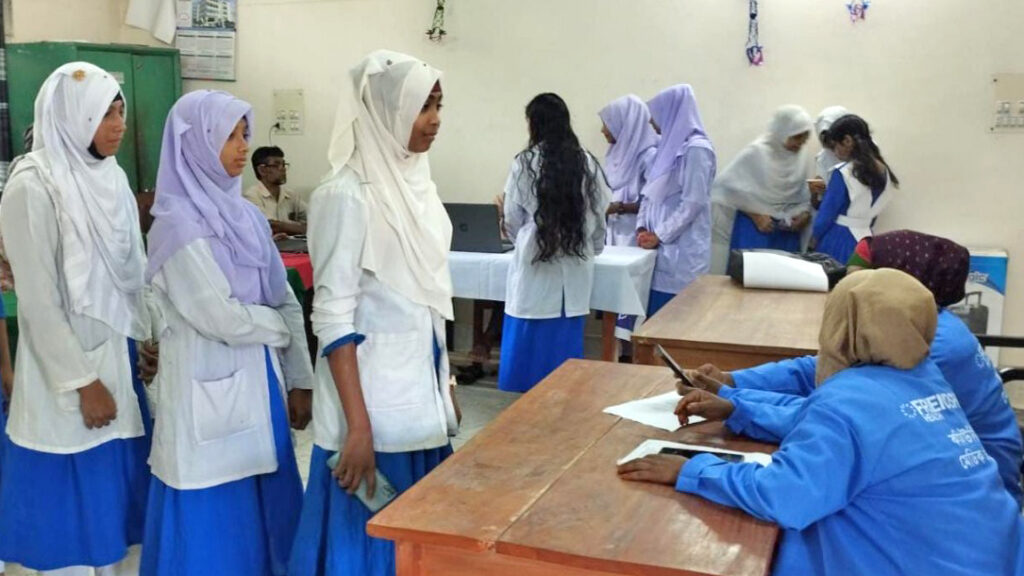
Despite free vaccines at schools and vaccination centres, many girls, including those out of school or in informal and religious schools, risked being left out due to limited awareness and access to information. Low exposure to mass and social media meant these girls and their families were often unaware of vaccination campaigns with the possibility of remaining without vaccination, especially in the kind of remote places that Friendship works in. In response, Friendship’s FCMs mobilised local communities by organising courtyard meetings, conducting door-to- door visits, raising awareness and mobilising eligible girls to vaccination centres in coordination with the Government health workers working in the field level. The FCMs received three hours of orientation to understand their responsibilities, ensuring the effective implementation of the national HPV programme in these underserved areas.
Subsequently, the FCMs identified around 22,500 eligible girls. Of these girls, 19,000 were registered, around 85% of the eligible adolescent girls, and 18,200 vaccinated for HPV, which is around 81% of the eligible adolescent girls, bridging the gap for those who may otherwise have been overlooked.
